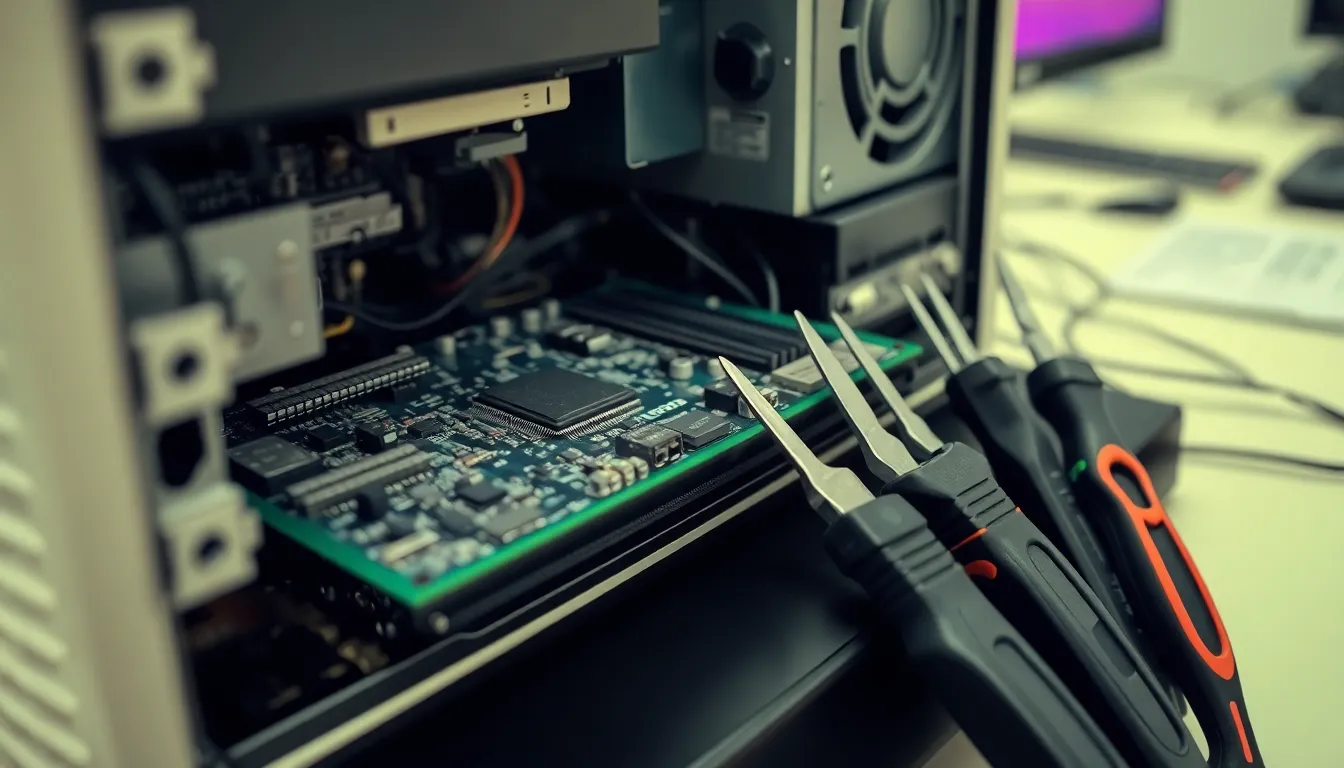In the world of research, the experimental group is like the star of a reality show—always under the spotlight and full of surprises. This group gets the special treatment, receiving the experimental treatment or intervention while the control group sits back and sips their coffee, blissfully unaware of the scientific drama unfolding.
Understanding what an experimental group is can transform the way one approaches experiments, whether in a lab or in everyday life. It’s not just about numbers and statistics; it’s about discovering how different variables can shake things up. So, buckle up as we dive into the fascinating world of experimental groups and uncover their role in the grand adventure of scientific inquiry.
Table of Contents
ToggleUnderstanding Experimental Groups
Experimental groups play a crucial role in research, serving as the focus for testing hypotheses while contrasting with control groups. Researchers study these groups to observe the effects of various stimuli or treatments.
Definition of Experimental Group
An experimental group consists of subjects that receive the treatment or intervention being tested in a study. This group operates under specific conditions tailored to isolate the independent variable of interest. Researchers analyze the responses from this group to determine any changes or effects directly attributable to the treatment. In this context, defining an experimental group helps clarify the relationship between cause and effect.
Importance in Research
Experimental groups are vital for drawing valid conclusions in scientific studies. They provide empirical data that supports or refutes hypotheses. By contrasting results with control groups, researchers can identify the specific impact of their interventions. Understanding the dynamics within an experimental group also enables scientists to refine their methods, ensuring more accurate and reproducible outcomes. This importance extends beyond laboratory settings, applying to behavioral studies, product testing, and even social experiments.
Characteristics of Experimental Groups

Experimental groups possess distinct characteristics that differentiate them from other groups in research. Understanding these traits aids in the effective design and execution of experiments.
Selection Criteria
Researchers determine selection criteria based on the specific objectives of their studies. Age, gender, and health status often factor into participant selection. Random sampling can enhance representativeness, minimizing bias in results. Additionally, inclusion and exclusion criteria help ensure that subjects meet certain requirements relevant to the hypothesis. This systematic approach to selection ensures that the experimental group closely aligns with the research objectives.
Sample Size Considerations
Sample size significantly impacts the reliability of experimental results. Larger sample sizes generally lead to more robust data, reducing the likelihood of random error. Researchers often use statistical power analysis to determine the minimum sample size required to achieve reliable results. A common guideline suggests using at least 30 subjects per group, as this number provides sufficient power to detect meaningful differences. Size considerations aid in the overall validity and applicability of research findings.
Types of Experimental Groups
Understanding the types of experimental groups enhances clarity in research methodologies. Two primary categories often exist: control groups and experimental groups.
Control Groups vs. Experimental Groups
Control groups serve as a baseline, allowing researchers to compare results. These groups do not receive the experimental treatment, which helps isolate the variable being tested. In contrast, experimental groups receive the treatment. By analyzing differences between these two groups, researchers can determine the effect of the treatment with greater accuracy.
Variations in Experimental Design
Experimental designs can vary significantly. Independent groups design involves separate participants for each condition, thereby preventing any bias due to prior exposure. Paired or matched groups design uses participants matched on specific characteristics, which helps eliminate variability. Finally, cross-over designs allow participants to experience all conditions at different times, enabling a comprehensive analysis of effects. Each design variation plays a crucial role in tailoring the research to its specific goals and contexts.
Applications of Experimental Groups
Experimental groups hold significant value across various fields, particularly in scientific research and clinical settings. Their structured design allows researchers to draw meaningful conclusions from experimental data.
Use in Scientific Research
In scientific research, experimental groups facilitate hypothesis testing. Researchers use these groups to determine how specific variables influence outcomes. By isolating the independent variable, they can observe changes in response from the experimental group while the control group remains unchanged. This contrast aids in validating or refuting scientific theories. For instance, studies involving new drug efficacy rely on experimental groups to assess the drug’s impact compared to a placebo. Overall, the systematic approach of experimental groups enhances the reliability of findings in numerous scientific inquiries.
Role in Clinical Trials
Clinical trials heavily depend on experimental groups to evaluate new treatments. These groups receive the intervention being tested, allowing scientists to monitor their effectiveness and safety. Control groups serve as a benchmark, providing essential comparative data. For example, during a trial for a cancer drug, one group would receive the medication, while another would receive standard care. This structure not only ensures precision in measuring treatment effects but also helps identify any adverse reactions. The combination of experimental and control groups is crucial in regulatory approvals and improving patient outcomes.
Understanding experimental groups is vital for anyone engaged in research or experiments. They play a crucial role in isolating variables and determining the effects of interventions. By analyzing responses from experimental groups compared to control groups, researchers can draw meaningful conclusions that advance knowledge in various fields.
This structured approach not only enhances scientific inquiry but also has practical applications in everyday decision-making and product testing. As researchers continue to refine their methodologies and designs, the significance of experimental groups remains a cornerstone of effective research practices. Embracing this knowledge can lead to more informed conclusions and innovative solutions in diverse areas.




